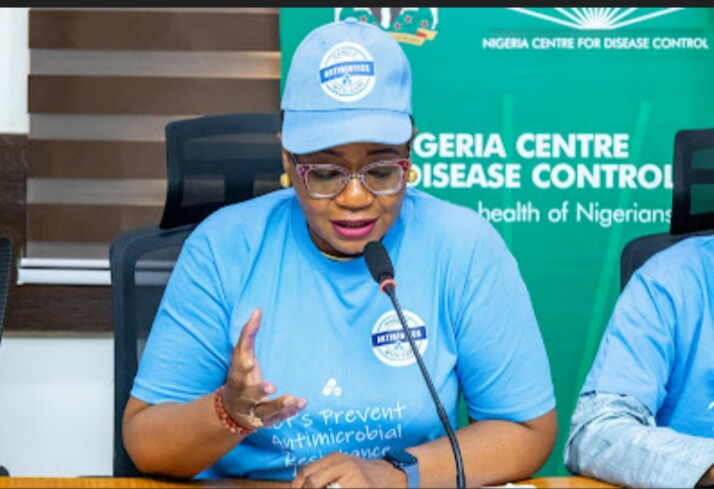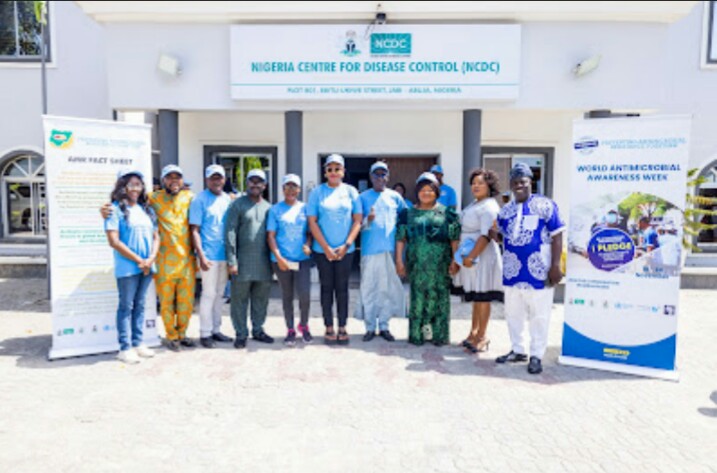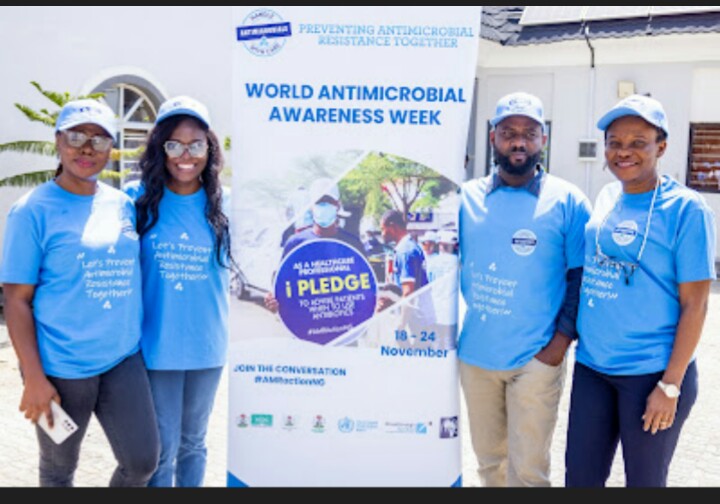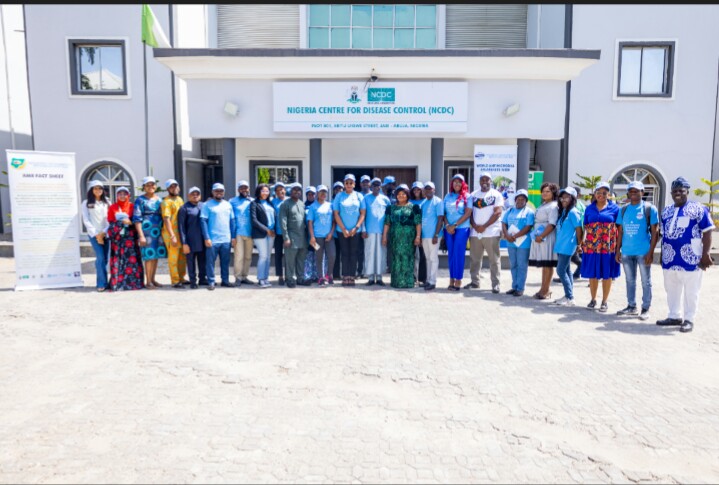Nigeria Center for Disease Control and Prevention (NCDC) in collaboration with Federal Ministry of Health, Federal Ministry of Environment as well as International Development Partners such as USAID MTaPS, World Health Organisation (WHO) and other critical Stakeholders commenced the commemoration of World Antimicrobial Awareness Week (WAAW) for the year 2022, yesterday.
The annual one-week awareness activities which hold between November 18th and 24th, kicked off with a Press Briefing at NCDC Headquarters in Abuja.

In a Press Statement signed and issued by Ifedayo Adetife, Director General, NCDC says “Antimicrobials are essential to treating some human and animal diseases like sepsis, pneumonia,and other life-threatening infections. Microbes, such as bacteria, can develop resistance to antimicrobials when they are used improperly meaning the bacteria is no longer susceptible to what should have been an effective drug.
“Globally, antimicrobials are increasingly becoming ineffective due to the inappropriate use of these drugs including the prescription of and use of antibiotics, which target only bacteria, during viral infections (like the flu), or as a growth promoter in agriculture. As a result, antimicrobial-resistant superbugs develop under this pressure of antibiotic abuse which confers on them a transmission advantage that allows them to spread more efficiently since they are now resistant to properly prescribed treatment.”

The statement added that, in reference to antimicrobial use in Nigeria, 7 out of 10 persons in the community access antibiotics outside licensed health facilities or pharmacies while many patients in the hospitals are over prescribed antibiotics that have a higher risk of bacterial resistance selection (above the 60% target set by WHO).
“In the animal health sector, antimicrobials are available in the open markets without restriction, hence the misuse of these products especially in food producing animals. Residues of these antimicrobials in eggs, milk,and meat, when consumed
by humans can potentially cause cancers, allergies, and mutations.” statement said.

Speaking at the Press briefing, the Chief Veterinary Officer of Nigeria, posited that Antimicrobial resistance (AMR) is a global public health and development threat. Its consequences, direct and indirect, can affect both human and animal health. The WHO has described AMR as one of the top 10 global public health threats facing humanity. It threatens the effective treatment of an ever-increasing range of infections caused by bacteria, parasites, viruses and fungi. It has been estimated that by 2050, 10 million worldwide deaths could result from antibiotic resistance, making it deadlier than cancer.
“It is estimated that about 70% of antimicrobial agents sold in the world are used in the animal health sector. In 2020, about 1.8 million tons of active ingredients were imported for use in animals from eight classes of antimicrobials.” he added.
Dr. Daniel Onwuliri, Senior Technical Advisor, USAID-MTaPS, in his remarks stated that “Antimicrobials resistance remains an ongoing threat to all and it’s a silent pandemic or like some have called it “a Pandemic in waiting”. The Antimicrobial use problem where unregulated access to antimicrobials is rife, creates a great burden for the health system and for communities working to tackle AMR.
Dr. Obinna Onuoha of Breakthrough Action, highlighted the collaborative efforts by his organization in minimizing the impacts of AMR across Nigeria.
“We have supported the Federal Ministry of Agriculture and Rural Development (FMARD) in its recent antimicrobial resistance (AMR) community sensitization in Karu abattoir area in the FCT, where butchers and meat sellers where reached with messages on AMR, as well as the investiture of the Karu Community Chief as an AMR Champion.
“We are aso supporting the NCDC to develop job aids for healthcare workers to guide them on the rational and judicious use or dispensing of antibiotics in healthcare facilities nationwide.” he remarked.
Key Messages for Antimicrobial Awareness
The NCDC and One Health stakeholders continue to urge Nigerians to use antimicrobials responsibly by
● Asking for laboratory tests where possible to guide the use of antibiotics and other antimicrobial agents e.g.,antimalarials
● Complete the dose of antibiotics as prescribed by licensed human and animal health workers
● Do not share or use leftover antibiotics
● Do not use antibiotics as prophylaxis or for growth promotion
● Practice hand hygiene and environmental sanitation consistently
● Ensure effective biosecurity practices on farms
● Vaccinate your family, children, and animals appropriately.
